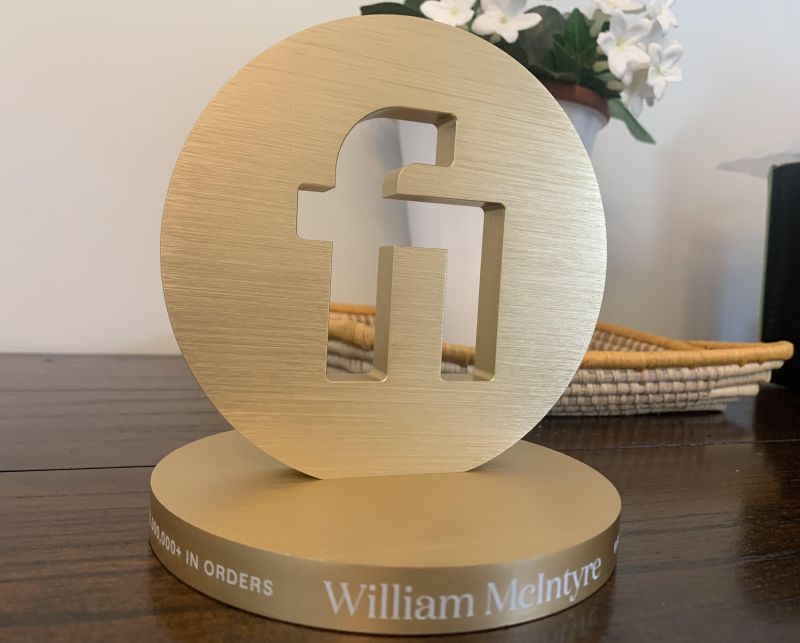My writings
This is a small collection of writing that I've done. If something here speaks to you, reach out to me and let's talk about it.
Opinions Are a Last Resort
October 31st 2025
The Cables Stuck Too Deep
September 15th 2025
Your Dog May Stop Loving You
August 12th 2025
The Goal Is to Think as Little as Possible
July 13th 2025
I Got Fine-Tuned to Use More Em Dashes Too
June 3rd 2025
If You Want to Learn How to Read, Learn How to Edit
April 11th 2025
Republishing My Simpsons Fan Site, Twenty Years Later
January 5th 2025
Crawlers in the Henhouse
September 24th 2024
Living by my values
Curiosity, pragmatism, courage, and compassion.
About me
I'm a software engineer, writer, media preservationist, and mindfulness practitioner. My core interests are in finding and building tools at the crossroads of these things.
Always building
I grew up with computers, picking up PHP and MySQL when I was 12 and building my first website, an ode to The Simpsons and Simpsons internet culture, in 2004 when I was in eighth grade. Both my father, who was a programmer, and my mother, who led multiple organizations in insurance tech, were very supportive of my interest in technology and the internet. Because of my 20+ years of experience coding and my 5 years of experience with language models, the latest tools (Cursor and Claude Code) have made me greatly capable of launching complete, secure projects in hours rather than months.
Bingeclock
Online since 2014 and enjoyed by tens of millions in that time, Bingeclock is a tool for cognizant media consumption. Media coverage has appeared in AV Club, Slashfilm, Time, Quartz, IEEE Spectrum, SFGate, Stacker, Complex, Vice, Forbes, Uproxx, Kottke, Mashable, TechRadar, Yahoo TV, Vsauce3, The Awesomer, BGR, The Mary Sue, Inquisitr, and others.
Features on Bingeclock include:
- Tracking and time calculations for movies, TV shows, video games, web videos, and more
- Marathons, for serializing all trackable media
- Charts and other tools for analyzing one's media consumption
- Collectible, tradeable digital cards
- Investigator Browser for perusing Archive-hosted fan sites in a 90s-inspired interface
WriteYourLawmaker
WriteYourLawmaker is a tool for having physical letters mailed to legislators, governors, and other government officials. Search our comprehensive database of names and seats, use templates in the tone of your choice, have your letter done by autopen, share your letter with friends, and more.
Are We Trek Yet?
Are We Trek Yet? is a tracker of humanity's progress building the technologies that Star Trek suggested, from holodecks to replicators. It assigns a status of "available," "in progress," or "not yet" to each technology and notes groups that are working on making them a reality. At launch, it reached the top spots on the subreddits r/InternetIsBeautiful, r/scifi, and r/singularity. It was also shared by the estate of Gene Roddenberry, Star Trek's creator, on the Roddenberry Facebook page and reached the front page of Hacker News.
Clinical Role for OpenEMR
Clinical Role is a plug-and-play sidecar AI agent designed for compatibility with OpenEMR, the world's most popular open-source health records system. It demonstrates a suite of tools for improving clinical workflows with additional information (including drug guidelines, drug interactions, clinical trial access, and biosphere activity data) plus the latest in advanced LLM reasoning capabilities. Featuring a modular system that makes it easy to swap in new clinical tools with their own custom evaluations, it's open source under the MIT license and available on GitHub.
iTypedMyPaper
iTypedMyPaper is a simple tool for writers and students to create evidence that they wrote something the old-fashioned, manual way (on a keyboard). It's open source under the MIT license and available on GitHub.
Always learning
While I build primarily with a combination of Python, PHP, MySQL, React Native, and vanilla JavaScript, I enjoy trying out new things. I have worked with a wide range of other coding languages, frameworks, and systems, including C++, multiple flavors of Linux (Ubuntu, Debian, NixOS, Kali), lots of AWS (S3, EC2, RDS, Lambda, Bedrock), other clouds (Azure, Cloudflare, DigitalOcean), Hack, React, Node.js, Docker, MongoDB, PostgreSQL, Redis, and of course, Git. (I also have many hours of experience with Adobe Flash but I've been told not to include that. Out of respect for the Ruffle maintainers, I've opted to put it here as a paranthetical.)
Planning for the 2030s
I believe that we are living through a decade of seismic socioeconomic change. My overarching goal through all my current projects is to help imbue a sense of mindfulness, which has meant so much to me in my life, wherever possible in technology and media.
Freelance writing
I did freelance writing full-time on Fiverr, as a "Pro Verified" and "Top Rated" seller, from 2015 to 2025, after which I took a step back to focus on my web properties. Media coverage with Fiverr appeared in Luckbox Magazine, Bloomberg, Morning Brew, and Insider. I also appeared on Carrie French's YouTube channel to talk about ethics and transparency in business and wrote and produced a Fiverr Learn course about ghostwriting.
Through Fiverr, my freelance writing services were employed by top-tier brands such as Amazon, monday.com, Mayo Clinic, Farmers Insurance, Fiverr itself, Redefine Meat, Great Ape Games, and Spot My Dot.
It was my distinct honor as a ghostwriter to help people from more than 120 countries talk through, understand, and express their own experiences and insights with clearer, more poignant usages of the English language.
 In 2024, Fiverr sent me this award in recognition of surpassing $1,000,000 in revenue.
In 2024, Fiverr sent me this award in recognition of surpassing $1,000,000 in revenue.
 I rang the NYSE opening bell alongside Fiverr's CEO Micha Kaufman on February 19th, 2025.
I rang the NYSE opening bell alongside Fiverr's CEO Micha Kaufman on February 19th, 2025.
Earlier on
I grew up in Pennsylvania's Lehigh Valley, obtaining my BA in English Literature and Classics (mostly translating Classical Latin literature) at Lehigh University. I'm grateful to my advisors Dr. Kate Crassons (English Literature) and Dr. Barbara Pavlock (Classics), for mentoring me and teaching me about careful, passion-driven scholarship.
Volunteering
Since 2018, I have volunteered as a mentor and done editing on the annual anthology for PEN America's Prison Writing Program.
VHS, vinyl, Betamax, DVD
I preserve and restore physical media as a hobby. This is a matter of principle to me: especially as recommendation algorithms become even more powerful than they already are, I believe it's important for individuals to maintain control over the state of the media we consume.
Reading, reading, reading
Some of my favorite novelists are Kazuo Inshiguro, Ursula Le Guin, Chinua Achebe, Marilynne Robinson, Stanisław Lem, Norman Maclean, Margaret Atwood, and Thornton Wilder. I like the non-fiction works of Jaron Lanier, Paul Graham, Ray Kurzweil, and Ram Dass. Find me on GoodReads.
Running and fitness
To date I have run one marathon and about a dozen half-marathons, including the 2024 Poconos Spartan 10K, 2014 Tower of Terror 10-Miler, 2014 New Beford Half Marathon, 2013 Heartbreak Hill Half Marathon, and 2012-2015 Runner's World Half Marathons. I also enjoy practicing yoga and lifting weights.
Meditation and self-reflection
With my partner, by myself, or in a big group, I like to exist in silence. It brings me back to the source of everything else in my life.
 Me in my natural habitat, caffeinated and staring at an electronic device.
Me in my natural habitat, caffeinated and staring at an electronic device.